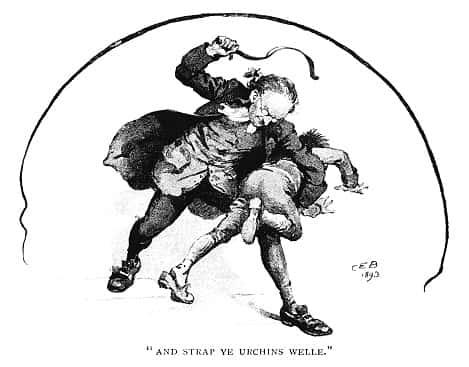Spanking can worsen child's behavior and do more harm, study finds

The saying "spare the rod and spoil the child" has not aged well. Historically, disciplining a child involved physical harm of some kind. It was believed that you can beat a child into good behavior. This was true even until recent times, with many people who still go around saying, "I was beaten as a child and I turned out fine." But they are not fine and carry the trauma in one form or another. There have been plenty of studies over the years about how hitting children does more harm than good. The most recent review by The Lancet states that physical punishment has detrimental effects on children.

The review found that "physical punishment is increasingly viewed as a form of violence that harms children." It used 69 studies from the US, Canada, China, Colombia, Greece, Japan, Switzerland, Turkey, and the United Kingdom to conclude the impact physical punishment like spanking had on the lives of children. They found seven key themes across the studies and compiled the same in their review. "The consistency of these findings indicates that physical punishment is harmful to children and that policy remedies are warranted," the review stated referring to spanking and other forms of child punishment.
"Parents hit their children because they think doing so will improve their behavior," Elizabeth Gershoff, a professor in human development and family sciences at The University of Texas at Austin said, according to CNN. "Unfortunately for parents who hit, our research found clear and compelling evidence that physical punishment does not improve children's behavior and instead makes it worse." Gershoff was also one of the authors of the Lancet review and stated that physical punishment such as spanking is "harmful to children's development and well-being." It also found that children started to act out more after the punishment.
Spanking does not appear to improve a child's positive behavior or social competence, a review of global studies finds https://t.co/4bUalJcYzC
— CNN (@CNN) June 29, 2021
If there was a generic belief that even though children act out immediately, they would learn over time, the review found that physical punishment did not yield any positive outcomes over time. The common findings in all the studies were that physical punishment consistently predicted an increase in child behavior problems over time. It also increased the involvement with child protective services. The only evidence of children eliciting physical punishment is for externalizing behavior. Gershoff said this led to an "increased aggression, increased antisocial behavior, and increased disruptive behavior in school."
Physical punishment also predicted worsening behavior over time in quasi-experimental studies. There was an association between physical punishment and detrimental child outcomes which "were robust across child and parent characteristics." The seventh common theme across the studies was that there is evidence of a dose-response relationship. "In other words, as physical punishment increased in frequency, so did its likelihood of predicting worse outcomes over time," Gershoff said. Physical punishment is not limited to just parents punishing children but also practiced in schools in the form of corporal punishments for miscreants.

While the child may have a loving home but had to go to a school where they were meted out physical punishment, four out of five studies found that an overall warm and positive parenting style "did not buffer the effect of physical punishment on an increase in behavior problems." The review also found from one study that young children who were physically punished gained "fewer cognitive skills" than did those who were not physically punished. Nearly three in four children aged 2 to 4 worldwide experience violent discipline by their caregivers on a regular basis.
Research from Harvard offered tips for educators and caregivers to eradicate spanking in schools and homes. It urged adults to recognize that spanking is not an effective tool of discipline, to work towards eradicating pushing for policies that can make corporal punishment illegal in the world, and to provide better support to families."










